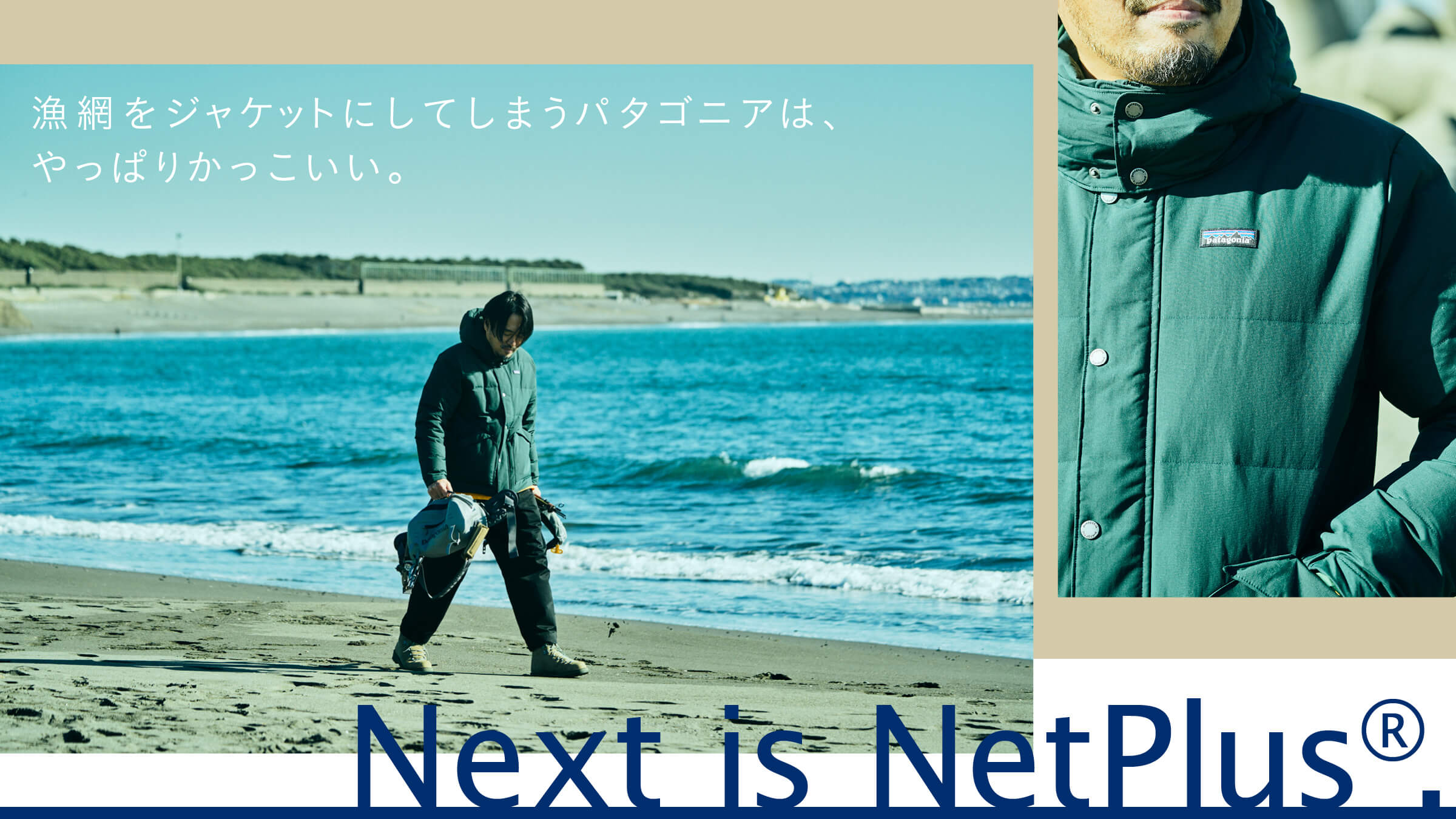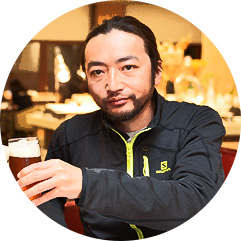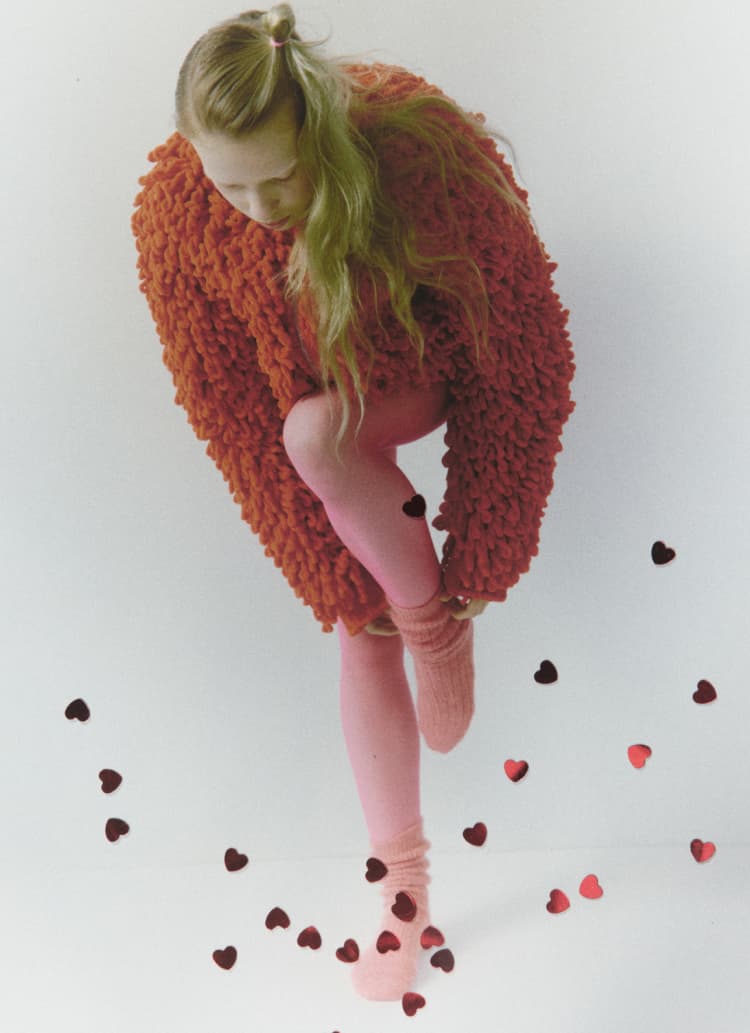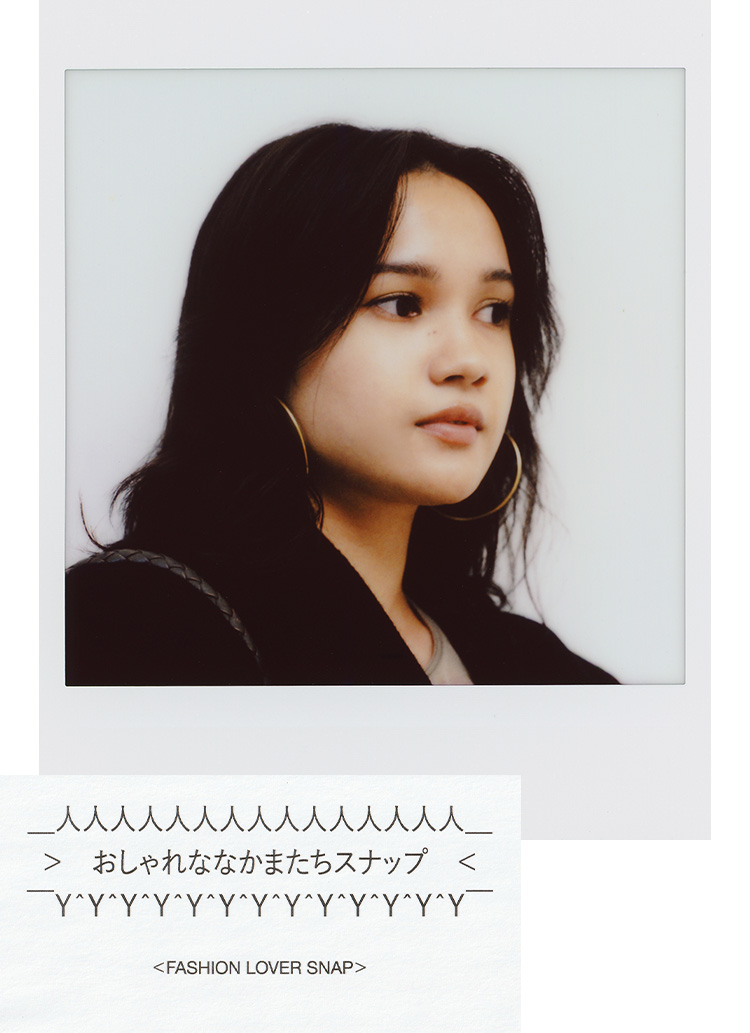PROFILE
Born and raised in Numazu City, Shizuoka Prefecture, he lived close to the sea from his childhood. After moving to Tokyo, he lived in the city, and 12 years ago, he moved from Tokyo to Shonan and Fujisawa area near the sea. He spends his days enjoying his hobby of fishing. In business, he is involved in "urself," a brand that makes and delivers clothing within one's reach, and "NICATA," which produces food products using skipjack tuna.
Patagonia has invested in this nylon material developed by the California company Breo, which is made from 100% recycled used fishing nets. Patagonia plans to sell many of its future products using this material.
The environmental destruction that is going on at this very moment .
Mr. Amase, what is the most impressive marine debris that you see in the ocean?

KAISE:I know it's a bit condescending, but there are often adult products and condoms for men. Especially in summer. If you use them, I think you should throw them in the trash with impunity, not in the ocean or river. Also, there is a lot of plastic garbage. For example, shards of shattered buckets. I like fishing and often process the fish I catch, and I have found pieces of plastic in my stomach.
. From here, I can see the excavators working hard to heap up the earth for the seawall construction. Do you feel the sea has changed in the past 12 years?
KAISE:. It feels like a mess. There is a big river near here, the Sagami River, and the sand in this area is formed by sand that flowed from the mountains in the Sagami River system. But since the sand stopped flowing after the dam was built, the beach has been eroded by 2 to 3 meters. Especially around Shichirigahama beach, it is very advanced. You can see it clearly when you look at it from the sea by boat. Of course, it is not as simple as just eliminating the dam, considering the safety concerns of the residents along the river, such as flood damage.

KAISE:. Some parts of the beach have lost 10 to 20 meters of sand in the last 30 years or so. . I also hear that typhoons take a lot of sand with them. It is easy to think lightly when you hear that the beaches are disappearing, but it means that the land is disappearing. If the beaches disappear, the ecosystem will change, the roads and buildings facing them will become unusable, and salt damage will come further inland. This will be much worse in decades to come.
. The government is not sitting on its hands, but it's not working either.
KAISE:The area around here, too, has probably spent billions of yen over the past 30 years or so to build a seawall. But they have not caught up. . I personally don't know the answer as to how to improve the situation. But I have to keep thinking about it.
. It is indeed a difficult question.
KAISE:When we create something, we aim for the SDGs, but there is always a conflict. For example, in apparel, there is a company that says they are starting a brand dedicated to the SDGs, but shouldn't they not create it in the first place? . And so on. . Then no waste would be produced, and no CO2 would be emitted because no machinery would be moved. . So, when I create something, I try to ask myself the same question as I go forward.









